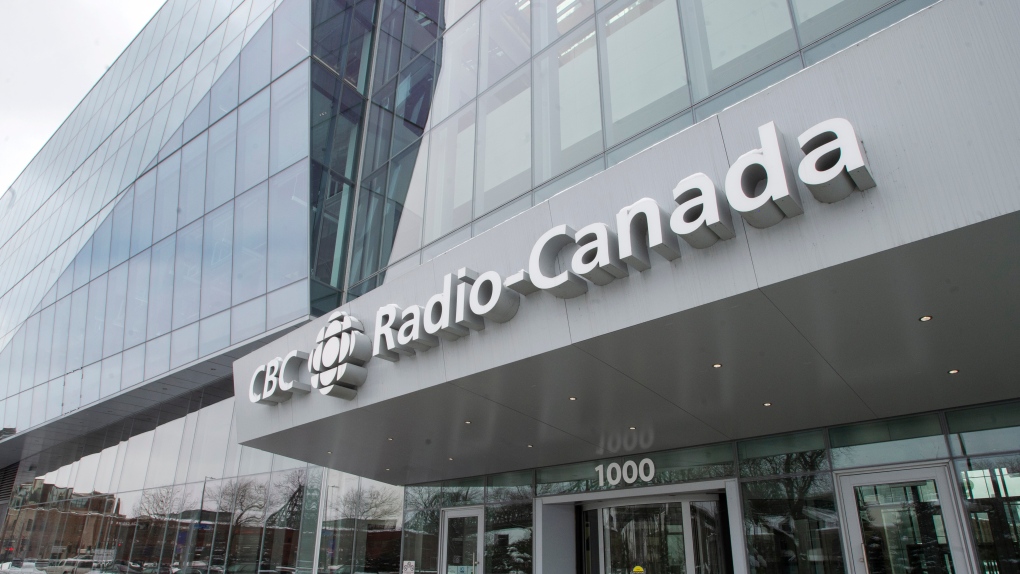Article content
Here is a roundup of stories from The Canadian Press designed to bring you up to speed on what you need to know today…
Tourism operators face heavy debt, even as business roars back
|
|


TORONTO –
CBC/Radio-Canada said it is “pausing” its use of Twitter, a day after its main account was labelled “government-funded media” by the social media platform.
“Twitter can be a powerful tool for our journalists to communicate with Canadians, but it undermines the accuracy and professionalism of the work they do to allow our independence to be falsely described in this way,” CBC media relations director Leon Mar said in a statement announcing the change Monday afternoon.
“Consequently, we will be pausing our activity on our corporate Twitter account and all CBC and Radio-Canada news-related accounts.”
Mar added in an afternoon email to The Canadian Press that Twitter did not consult the public broadcaster before applying the label Sunday and thus, CBC has sent a letter to Twitter asking the company to re-examine the designation.
Twitter updated CBC’s label to “70% government-funded” Monday evening, after a user on the platform posted that the broadcaster receives 70 per cent of its funding from the Canadian government.
“Just trying to be accurate. Would they be okay if we said 70% govt funded?” Twitter chief executive Elon Musk replied.
Later, following another user’s suggestion, he adjusted the label to “69% government-funded” and tweeted “generosity is always the right move. 69% it is!”
Twitter’s website defines “government-funded media” as “outlets where the government provides some or all of the outlet’s funding and may have varying degrees of government involvement over editorial content.” Twitter’s policy links to a Wikipedia page listing “publicly funded broadcasters” it said it may use in determining when this label should be applied.
CBC does not meet those criteria, Mar argued Sunday, because it is publicly funded through a parliamentary appropriation that is voted upon by all MPs, and its editorial independence is protected in law in the Broadcasting Act.
The CBC’s board of directors determines how the funding it receives is spent. In 2021-22, the CBC received more than $1.2 billion in government funding, a decrease from about $1.4 billion the year before. That compares with other revenue of $650 million in 2021-22 and $500 million the year before.
Twitter responded to multiple requests for comment about why the label was applied and whether it would be removed or changed with an auto-generated email bearing a poop emoji.
Last week, National Public Radio (NPR) announced it would quit Twitter over the social media company labelling it “state-affiliated media,” a term often associated with outlets controlled by authoritarian regimes.
Twitter later changed the label to “government-funded media” and began doling it out to other publishers including the BBC, which had previously been named as an exception to the “state-affiliated media” label. The BBC’s label was later changed to “publicly-funded media.”
Ahead of the CBC announcing its plan to pause its use of Twitter, Vass Bednar said the public broadcaster should leave the platform because the tag it was given erroneously positions CBC as an extension of the government that is not intellectually independent.
“In the immediate moment, it feels like an opportunity to refresh the public’s understanding of how they’re funded and how they maintain their editorial independence,” said Bednar, the executive director of McMaster University’s master of public policy in digital society.
Friends of Canadian Broadcasting said Monday that it wrote to Twitter asking for CBC’s new designation to be removed because it is “incorrect and misleading.”
While Dwayne Winseck was still considering what action CBC should take, the professor at Carleton’s University’s School of Journalism and Communication said he believes CBC should at least team up with NPR and other public service media outlets to develop a shared strategy for dealing with the whims of social media giants.
“Maybe working toward a more joined-up action would be a great way to go and if all, public service broadcasters yank their services (from Twitter), I think that’s an interesting point to be made and it will give them much more clout,” he said.
Winseck said Twitter’s labelling of CBC’s account is “hugely problematic” because it doesn’t capture some of the nuances of CBC’s funding and its editorial independence.
He thought the move was meant to “delegitimize” the CBC and public service media, highlighting why it’s important that platforms such as Twitter not have “unbridled power to unilaterally impose labels like this that have the effect of influencing the conditions and distribution of news media.”
The changes were made as Musk, the billionaire behind Tesla and SpaceX, continues to lead the company he bought for US$44 billion last October.
He has since pledged to make several changes to the platform, including removing verified blue check marks for users that don’t pay for his subscription service and recently, temporarily changed its blue bird logo to a shiba inu dog, a reference to the Dogecoin cryptocurrency he has invested in.
“I think every incremental, strange, random change that Elon Musk has made to Twitter seems like it’s fundamentally a test of the user stickiness,” said Bednar.
“Are people actually going to exit the platform? Do they have an alternative or are they willing to extinguish or silence their digital voices?”
This report by The Canadian Press was first published April 17, 2023.







Here is a roundup of stories from The Canadian Press designed to bring you up to speed on what you need to know today…
Tourism operators face heavy debt, even as business roars back
Article content
Canadian tourism operators says the tourism sector hasn’t returned to what it was pre-COVID.
Many businesses report carrying a heavy debt load, with Vancouver-based ecotourism company Maple Leaf Adventures saying it’s carrying it’s heaviest debt load in 38 years.
Advertisement 2
Article content
Co-owner Maureen Gordon says while she and her competitors are recovering, higher interest rates are putting a damper on the post-COVID rebound.
Tourism Industry Association of Canada C-E-O Beth Potter says while the sector brought in 109-billion dollars in revenue last year, the federal government must help out by bringing in a new low interest loan program.
Tourism Minister Soraya Martinez Ferrada has said tourism operators have been affected by the warmest winter on record, but will be helped by the federal carbon rebate.
Here’s what else we’re watching …
Trudeau to make announcement in Saskatoon today
Prime Minister Justin Trudeau will be in Saskatoon today, where he will make an announcement highlighting measures focused on youth, education, and health that were contained in last week’s budget.
Joining Trudeau at the announcement in Saskatchewan’s largest city are minister for northern affairs Dan Vandal and Women and Gender Equality and Youth Minister Marci Ien.
Trudeau has faced conflict with the Saskatchewan Party government, whose leader, Premier Scott Moe, has been a vocal and long-standing opponent of the federal carbon levy.
Advertisement 3
Article content
Moe is one of several premiers who have asked Trudeau to host a meeting to discuss alternatives to the consumer carbon price.
—
‘Perfect storm’: Quebec farmer protests continue
Quebec farmers are continuing a series of protests that have brought slow rolling tractors to communities across the province’s agricultural regions.
The president of Quebec’s farmers union Martin Caron says producers are struggling with higher interest rates, growing paperwork and fees on plastic products, like containers of seeds, fertilizer and pesticides.
His organization is asking the current Coalition Avenir Quebec government to ensure farmers can get loans with interest rates of three per cent.
A spokesperson for Quebec’s agriculture minister says farmers can get emergency financial aid through a new program and that the government is consulting with the farmers union about reducing paperwork.
—
Study shows caribou growth at wolves’ expense
New research suggests western Canada’s caribou population is growing.
But the same study also shows the biggest reason for the rebound is the slaughter of hundreds of wolves, a policy which will likely need to continue.
Advertisement 4
Article content
Thirty-four researchers compared notes on herds in Alberta and British Columbia based on a study in Ecological Applications and found between 1991 and 2023, the caribou population dropped by half.
However, over the last few years the numbers have begun to slowly rise, as it’s estimated there are now more than 1500 caribou than there were had not restoration effort been made.
—
Second World War hangar in Edmonton burns in fire
An aircraft hangar built during the Second World War at Edmonton’s former municipal airport has been destroyed by fire.
A spokesman for the City of Edmonton says in an email firefighters were called to Hangar 11 just before 7 p.m. Monday.
The city’s email says 11 fire crews were dispatched to the scene to deal with the heavy smoke and flames and the wooden building later collapsed.
—
How a Newfoundland town shaped creepy ‘King Tide’
A new movie shot in Newfoundland showcases a community heavily reliant on a magical child.
“The King Tide” is about an isolated villagers having their lives forever changed after a mysterious infant washes up on their shores, the sole survivor of a devastating boat wreck.
They name the baby Isla, raise and learn she has healing powers promising immunity from injury and illness.
As the years pass, they become reliant on Isla’s abilities, but when her powers start to fade, a panic sets in as the community begins to fracture.
The movie was shot by Newfoundlander Christian Sparkes in Keels, Newfoundland, a former bustling fishing community which he says he’s been looking to film in for years, but couldn’t until recently due to the cost.
This report by The Canadian Press was first published April 23, 2024.
Article content
Canada’s plastic bag ban has had an unintended consequence: a proliferation of reusable bags piling up in basements, closets and, eventually, landfills.
“They’re everywhere,” said environmental researcher Tony Walker. “We’re drowning in them, and we shouldn’t be.”
To combat the problem, several of Canada’s big grocers have introduced solutions. Last week, Walmart launched a free national recycling pilot program for the retailer’s reusable blue bags. Competitors Sobeys and chains owned by Loblaw Companies Ltd. use recyclable paper bags for grocery delivery.
But some environmental experts argue that paper bags are also problematic and that the best solutions are those that help customers actually reuse their reusable bags.
“We just can’t keep giving [them] out,” said Walker, a professor at Dalhousie University’s School for Resource and Environmental Studies in Halifax. “We’re only meant to have a few of them, and we’re meant to use them until they fall apart.”
In late 2022, the federal government rolled out a ban on the manufacture, import and sale of several single-use plastics, including checkout bags. The regulations are being contested in court, but in the meantime, they remain in effect.


The regulations have made single-use shopping bags scarce in Canada, but they’ve also led to the proliferation of reusable bags, especially for grocery delivery.
“It just creates more waste, which is what we’re trying to avoid in the first place,” Walmart customer Udi Sela said in a CBC News interview in late 2022.
At the time, Sela, who lives in Maple, Ont., estimated his family had acquired about 300 reusable Walmart bags via grocery delivery.
“We can’t return them, we can’t do much with them.”
Now, a little more than a year later, Walmart has launched a pilot project to address the problem.
It allows customers to pack up their unwanted reusable Walmart blue bags and ship them — at no charge — to a facility where they’ll get a second life.
According to Walmart, bags in good condition will be laundered and donated to charity, primarily Food Banks Canada. Damaged bags will get recycled into other materials. Reusable bags typically can’t go in blue bins because they’re costly and difficult to recycle.
Customers must sign up for Walmart’s program, and enrolment is limited.
Jennifer Barbazza, Walmart’s senior manager of sustainability, said the retailer will fine-tune the details as the program progresses.
“[We] know that some customers have more reusable bags than maybe they need,” she said. “One of the things that we’re really excited to learn about from the pilot is customer acceptance and customer feedback.”
Reusable bags are living rent free in closets and car trunks across the country. Most major retailers made the switch away from single-use plastic bags about a year ago, but it’s taking time for some customers to catch on. They’re forgetting to bring their bags with them, and buying more every week.
Udi Sela has already signed up.
“I definitely think it’s a step in the right direction,” he said in an interview on Friday. “It’s something that needed to be done a while ago. God knows we’ve got a ton of bags kind of piled up.”
He said he’s concerned that some customers may find mailing the bags a hurdle. However, it’s not deterring Sela, who soon plans to ship hundreds.
Not everyone is keen on Walmart’s project. Emily Alfred, a waste campaigner with Toronto Environmental Alliance, said donating the bags to the food bank is just passing on the problem.
“We need to remove waste from the system entirely, and just sending these somewhere else for someone else to deal with is not really a solution,” she said.
Alfred said a better option is a program Walmart piloted in Guelph, Ont., in 2022. For a fee, customers could check out reusable bags from an in-store kiosk and later return them to be cleaned and reused.
“That’s a real circular reuse system,” she said.


Walmart’s Barbazza said the retailer is continuing to explore different reusable bag programs, including ones placed in stores.
She also said she’s confident Canada’s food banks will make good use of the bags.
“There’s definitely a need for sturdy items to distribute materials to the food bank clients.”
Among Canada’s major grocers, only Walmart offers a reusable bag program for all customers.
Loblaw recently switched from reusable to recyclable paper bags for grocery delivery. Sobeys did not respond to requests for comment, but according to its website, the grocer also uses paper bags and “reusable options” for home delivery.
Several environmental experts say paper bags aren’t a good solution, because their production leaves a sizable carbon footprint.
“Paper bags are a problem,” Alfred said. “It takes a lot of energy to recycle paper, takes a lot of trees and energy to make new paper.”
Loblaw said it continues to explore a variety of more sustainable solutions. “It’s a challenge we’re committed to addressing,” spokesperson Dave Bauer said in an email.


Both Walker and Alfred applaud Metro for its grocery delivery program, because the grocer, which operates in Ontario and Quebec, reuses delivery materials.
Metro said customers can get their goods delivered in a cardboard box or reusable bags, which can be returned and used for another delivery. Or customers can opt for a plastic bin and remove their groceries from it upon arrival.
Metro does not offer similar programs for in-store shoppers.
Alfred said the federal government should introduce regulations that mandate retailers adopt effective reusable bag programs for all customers.
“It’s up to our governments and people to demand that these companies do better,” she said.
But Walker suggested that the regulations would be hard to enforce and that incentives could be a better tactic.
For example, if retailers increased the price of reusable bags, shoppers might be less likely to forget them when they head to the store, he said.
“When the cost is a disincentive to do an activity, people change their behaviour.”
[unable to retrieve full-text content]
CTV National News: Honda’s big move in Canada CTV News





Source link
Honda to build electric vehicles and battery plant in Ontario, sources say – Global News




Will We Know if TRAPPIST-1e has Life? – Universe Today
Down 80%, Is Carnival Stock a Once-in-a-Generation Investment Opportunity?




Simcoe-Muskoka health unit urges residents to get immunized




See how chicken farmers are trying to stop the spread of bird flu – Fox 46 Charlotte
Honda expected to announce multi-billion dollar deal to assemble EVs in Ontario




Watch The World’s First Flying Canoe Take Off




Indigenous Craft and Vendors Market a success in Halifax
Comments